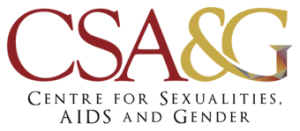The Africa-Europe Cluster of Research Excellence in Health, Gender, and Sexualities (CoRE HGS) generates ground-breaking interdisciplinary research to address health disparities among gender and sexual minority populations; and integrates public health and social sciences to understand the complex interplay of social, cultural, and healthcare-related factors affecting health outcomes and access to care. The cluster was officially established in July of 2023 as part of a joint initiative by the African Research Universities Alliance (ARUA) and The Guild of European Research-Intensive Universities (the Guild) and was recognised for its academic excellence and commitment to equitable collaborative research and researcher training
Over the next decade, the Africa-Europe CoRE HGS envisions conducting innovative research, developing interdisciplinary training, fostering international collaboration, and influencing evidence-based policy. Milestones during that period include initiating collaborative research projects, establishing a master’s programme, facilitating capacity-building through a research school for doctoral students, and organising research conferences.
To promote equitable collaboration, the cluster emphasises the following priorities fostering inclusive decision-making processes, engaging in collective capacity-building, ensuring transparent communication, demonstrating cultural sensitivity, and actively working towards the decolonisation of research. By integrating social science and public health perspectives, methods, and theories, the cluster aims to generate comprehensive insights and innovative solutions; strengthen research capacities, foster cross-disciplinary dialogue, and address health disparities faced by gender and sexual minority populations.
The Africa-Europe CoRE HGS is co-led by the Centre for Sexualities, AIDS and Gender, University of Pretoria and the University of Oslo with partner universities Addis Ababa University, King’s College London, Muhimbili University for Health and Allied Sciences, University of Mauritius, University of the Witwatersrand, and the Uppsala University.
For more information click here: www.corehgs.uio.no
